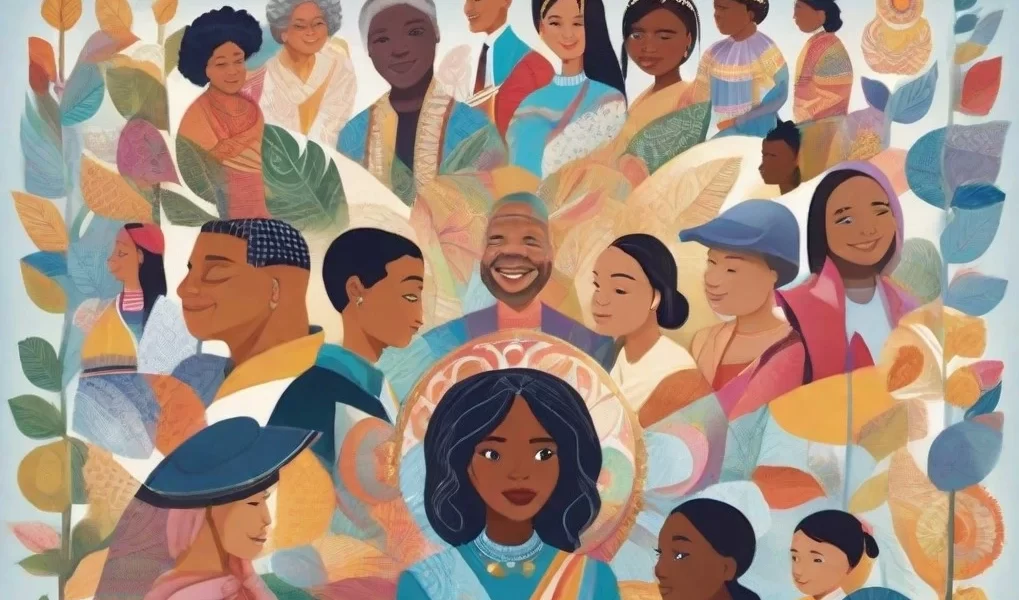In our rapidly evolving world, the ideals of diversity and inclusion have risen to prominence, becoming crucial factors in fostering a harmonious and progressive society. Beyond being mere buzzwords, these concepts signify a transformative journey toward a more tolerant, empathetic, and inclusive world. Embracing diversity involves recognizing the unique qualities and perspectives individuals from various backgrounds bring, while inclusion revolves around cultivating an environment that empowers every person to flourish. This essay delves into the significance of diversity and inclusion, their societal impact, and the path they forge toward tolerance, empathy, and a genuinely inclusive global community.
Diversity encompasses a vast spectrum of elements, including race, identity, orientation, age, physical abilities, socioeconomic background, and more. It is essential to acknowledge that individual experiences, ideas, and talents are shaped by diverse backgrounds. When people from different walks of life come together, they weave a rich tapestry of viewpoints that ignite creativity, innovation, and problem-solving. For instance, within the corporate realm, a diverse workforce fosters heightened productivity, improved decision-making, and increased adaptability to change.
Moreover, diverse communities foster social cohesion and a broader understanding of the world. Exposure to distinct cultures and beliefs encourages the acceptance of differences, the cultivation of respect, and the development of a global perspective. In a society that celebrates diversity, individuals learn to transcend their own viewpoints and extend empathy to the experiences of others, ultimately reinforcing the social fabric.
While diversity lays the foundation, inclusion ensures that every individual feels valued, respected, and welcomed in any given setting, be it a workplace, educational institution, or society at large. Inclusion entails dismantling barriers and offering equal opportunities for each individual to participate and flourish. It goes beyond mere representation, advocating for a culture that actively champions equity and belonging.
Within inclusive environments, individuals can harness their full potential, leading to enhanced overall well-being, heightened motivation, and increased self-esteem. Inclusion fosters a sense of community, where every voice is heard, and each individual’s unique contributions are acknowledged. When individuals feel esteemed and respected, they are more likely to collaborate, bridge gaps, and work toward shared goals.
Diversity and inclusion act as catalysts for cultivating tolerance in society. Tolerance involves accepting and respecting differences, even in the face of discomfort or disagreement. By nurturing diverse and inclusive spaces, we foster open dialogues and understanding. Exposure to diverse perspectives broadens one’s outlook on life, challenging preconceived notions.
Empathy stands as the cornerstone of a tolerant and inclusive society. Through empathy, individuals can comprehend the challenges faced by different communities, forging connections that transcend borders. Empathy empowers individuals to step into others’ shoes, acknowledge their struggles, and extend support and solidarity.
Cultivating empathy is feasible through exposure to varied experiences and narratives. Storytelling, for instance, grants insights into others’ lives, nurturing compassion and understanding. Educational institutions play a pivotal role in incorporating empathy-building practices into their curricula, preparing students for a more inclusive and tolerant future.
Education serves as a potent tool for shaping attitudes and values. The classroom is where young minds are molded, and where seeds of tolerance and empathy can be sown. By educating children about diverse cultures, histories, and experiences, educators foster an appreciation for differences and cultivate a sense of inclusion from an early age.
To further this cause, schools can champion extracurricular activities that celebrate diversity and encourage interactions among students from varying backgrounds. This hands-on approach significantly influences how children perceive diversity and inclusion, molding them into more empathetic and open-minded individuals.
Corporate entities wield considerable influence in shaping societal norms and values. Companies can integrate diversity and inclusion into their recruitment processes, leadership roles, and decision-making procedures. Moreover, they can foster a culture that encourages employees to bring their authentic selves to work, cultivating a sense of belonging and mental well-being.
Supporting community initiatives and participating in diversity-focused programs showcase a company’s dedication to building a more inclusive and tolerant society. Through partnerships with organizations that champion diversity and inclusion, businesses can leave a lasting impact on their workforce and the wider community.
While the journey to tolerance, empathy, and inclusion holds promise, it is not without challenges. Biases, whether conscious or unconscious, can impede progress. Recognizing and addressing these biases is pivotal in creating an authentically inclusive environment.
One effective strategy is the implementation of diversity training and workshops that explore unconscious biases and provide tools for mitigating them. Moreover, fostering open conversations about diversity-related topics can dispel misconceptions and foster understanding.
Diversity and inclusion transcend buzzwords; they epitomize a profound journey toward a more tolerant, empathetic, and inclusive society. Embracing diversity enriches lives, sparks innovation, and broadens horizons. Inclusion ensures that each person can contribute their unique talents and perspectives unhindered. Tolerance and empathy drive this journey, enabling individuals to value differences and stand united in solidarity.
Education, both within educational institutions and corporate settings, assumes a pivotal role in shaping attitudes and propagating diversity and inclusion. By challenging biases, nurturing empathy, and creating environments that celebrate diversity, we foster a world where everyone feels esteemed and included.
Amid the pursuit of diversity and inclusion, it is crucial to address systemic barriers and structural inequalities. Numerous communities confront historical disadvantages and discrimination, impeding their access to opportunities and resources. Tackling these issues mandates collective action from governments, institutions, and society as a whole. Policymakers must devise inclusive policies and implement measures that foster equality and fairness. Individuals can contribute by advocating for social justice, supporting marginalized communities, and collaborating to dismantle systemic biases.
As we continue on this path, let us remember that diversity is not a challenge to overcome; it is an asset to embrace. Inclusive societies nurture a collective sense of purpose, enabling us to confront pressing contemporary issues with compassion and ingenuity. Together, let us strive for a world where diversity is celebrated, and inclusion is the norm. Only then can we unlock humanity’s full potential and construct a more luminous future for all.
References
- W. Von Bergen, P. (2013). TOLERANCE AS CIVILITY IN CONTEMPORARY WORKPLACE.
Submitted by:


